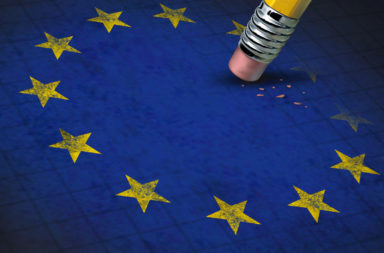The people who chafe at intervention by Brussels in the affairs of European Union member states are by no means confined to the UK. Others observe that European policies in the political domain, as well as in monetary policy, have self-evidently catastrophic effects. The Brexit debate is much deeper, and more nuanced, than often suggested.
A little exaggeration can season an argument. But it serves no purpose to present one side of the argument using such terminology as ‘quitter Brits’ who resent losing sovereignty to ‘unelected eurocrats’. In fact, member countries have begun to rein back sovereignty in areas such as the Schengen agreement. This underlines the extent of Europe’s political failures and divisions. Respect for these different perspectives, as well as the historic nature of the decision, requires more reflective consideration and a different kind of language.
The values-based aspirations of what was originally the European Economic Community are widely acknowledged. But there is robust evidence that values like subsidiarity and solidarity have long been emasculated, as seen in the sorry case of Greece. Equally, it was never envisaged that the European Community would transform itself into an unwieldy hegemonistic super-state wholly at variance with its foundational principles. But it has. Power – and trade surpluses – are firmly located at the centre.
The democratic deficit in Europe – encapsulated, if imperfectly, by the term ‘unelected bureaucrats’– continues to grow. Political dissent to the prevailing orthodoxy is caricatured as ‘populist’ or ‘extremist’. But this is not so. Those arguing against the creed of ever greater integration are not causing instability. Rather they are an expression of the divisions and fragmentation across Europe, and the costs and consequences of structural and political failures.
European Central Bank policy is creating deep distortions in global banking and financial markets, further exacerbating the structural problems of a flawed and imbalanced monetary union.
If the matter were being debated in the UK parliament there would be a strong argument (with which, I have to say, I agree) that Mario Draghi, the ECB president, should consider whether he should stay in his post. But of course it’s not – and he won’t. He will continue in his post, insisting ‘there are no limits’ to what the ECB will do in pursuit of its present policy. But of course there should be limits. And looking at the impact of these policies on global markets, we have long past such limits.
Europe has neither the capacity nor the political will to reform. It’s gone beyond that stage. As in a dysfunctional relationship between a married couple, there is a time to let go – and to rebuild.
All of this must give even the most ardent europhile pause for thought – especially following the decision to outsource the refugee crisis to Turkey, employing large funding and ‘fast track’ membership of the Union. That strikes at the very heart of what Europe is about.
One is reminded of John Maynard Keynes’ reputed retort: ‘When my information changes, I alter my conclusions. What do you do, sir?’
It is worth recalling a notable episode in the history of British colonisation and its unravelling: Singapore’s integration into Malaysia in 1963 and its subsequent departure in 1965. Despite the initial travail – as there would be, no doubt, were Britain to leave a deeply conflicted EU – both Malaysia and Singapore have prospered and no doubt will continue to do well. There are wider lessons there for British voters to ponder.




